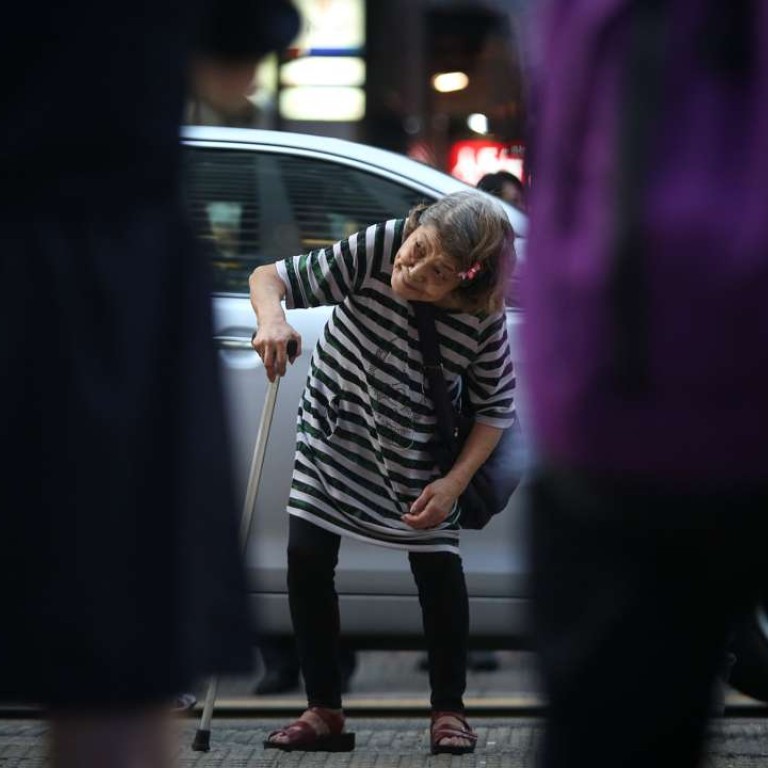
How Hong Kong’s outdated care system is failing the elderly
Patrick Cheung suggests reconsidering the government’s central role in service provision, among other issues, to create a system that will be more responsive to changing needs
The release of the government-commissioned study on elderly services in Hong Kong gives us a chance to understand the policy direction for elderly care here. The paper, with its 20 key recommendations, will shape our elderly care services for the next 20 to 30 years.
Every estate should have care facilities for seniors, Hong Kong’s first full elderly services plan proposes
While Japan, Korea, Taiwan, Singapore and even mainland China have all changed their policy framework, bringing in new perspectives to address the ageing challenge, Hong Kong’s Elderly Services Programme Plan seems quite comfortable extending our already 20-year-old elderly care policy to serve our future needs. The experience of advanced economies has demonstrated that purely increasing medical and care services not only causes an unbearable burden to public finance, but is also not effective in addressing other problems caused by an ageing population. We need a bold vision for constructing our future elderly care ecosystem.
Hong Kong ranks second in Asia for its fast-ageing population. To address the challenges ahead, three key issues need attention.
Hong Kong near bottom of world ranking for psychological health for the elderly
The first priority is to educate the public to understand we have to go beyond a welfare-only policy. Our senior citizens are looking to enjoy longer, healthier and more independent lives rather than just extending their lifespans. For this reason, just building more hospitals and nursing homes cannot meet our needs. We need to transform a city that was built for young people into a city for all ages. To strengthen leadership from government, a cross-bureau committee with statutory powers should be established, to speed up our structural institutional reforms within government.
Just building more hospitals and nursing homes cannot meet our needs. We need to transform a city that was built for young people into a city for all ages
The second issue is the roles of the public and private elderly care sectors. In Hong Kong, elderly care services provided by non-profit organisations enjoy an excellent reputation. Land and financial resources from the government enable them to run the best facilities and employ experienced management teams with full support from professionals such as social workers, health care professionals, physiotherapists and nutritionists. The elderly in need of services also go through them for application. As a result, the non-profit sector has earned a high degree of trust from the public.
In most countries, the public elderly care sector provides a basic safety net and the private market provides value-added services. This set-up enables the government to efficiently use tax revenues to support the maximum number of those in need while leaving room for businesses to serve the more affluent elderly residents.
This set-up is reversed in Hong Kong. Since the provision of public elderly care services is not subject to a means test, it is seen as the best care option. Imagine if public housing estates were better than those provided by private developers, would the government be able to shorten the waiting time of applicants by accelerating the pace of public housing construction?
I am happy to see the recommendations in the consultation paper, which will substantially increase funding for most subsidised elderly care services. What is missing in the report is how much these recommendations will cost us. Of course, the government can opt to take the money from our healthy surplus. Nonetheless, if we can reverse the roles of the public and private sectors, the required funds will no longer be a burden on public finances but a source of growth for a vibrant silver economy.

Hong Kong has a problem with population ageing, rather than an elderly problem
Last but not least, we have to address the structural problem of the elderly care industry – the construction of an efficient public market in which different players could innovate and compete on an equal footing for the provision of services. Professor Elinor Ostrom, winner of the Nobel Prize in economics in 2009, suggested separating resource provision and the appointment of delivery agents for public services as an effective way to deal with the typical inefficiencies in the public service sector. Service providers, including the state, charitable organisations, religious groups, cooperative societies and private companies, can then compete fairly for providing services to users.
The government’s role changes from that of a direct or indirect service provider to a regulator in the public market. Its task of matching the elderly with suitable service providers changes into one of evaluating their levels of need. Service vouchers can then be distributed to them, according to need, with which they can seek out suitable service providers.
The design of an elderly services policy for the future must include institutional changes, addressing the changing needs of today’s elderly. I wholeheartedly hope that Hong Kong can take the opportunity presented by the publication of the elderly services study and the ongoing public engagement to raise the discussion on in-depth reform in the provision of elderly services.
Patrick Cheung is a committee member of the Social Innovation and Entrepreneurship Development Fund task force, and chairman of Dialogue in the Dark, and the Water Drops Foundation
